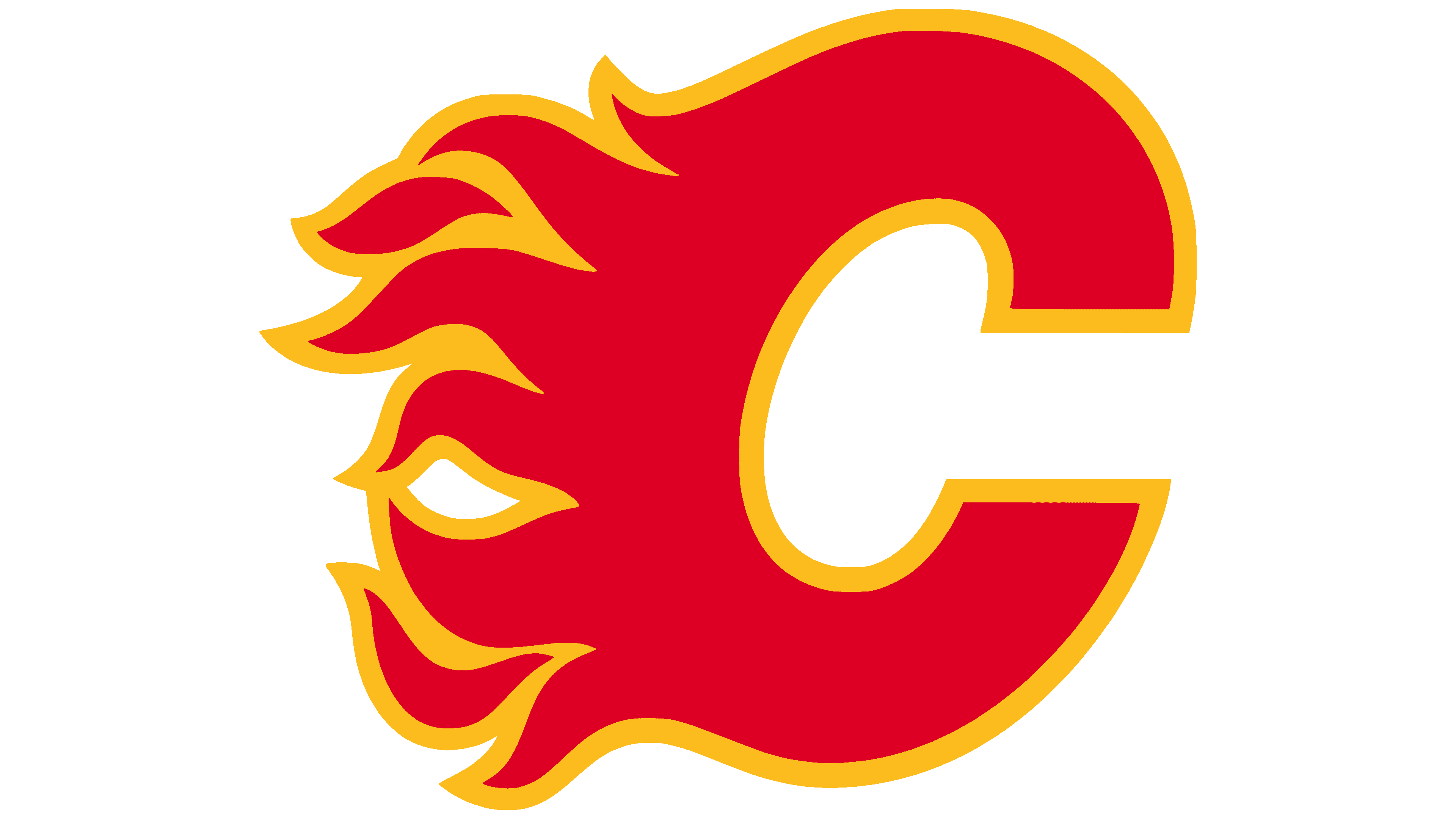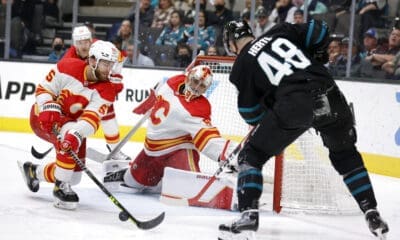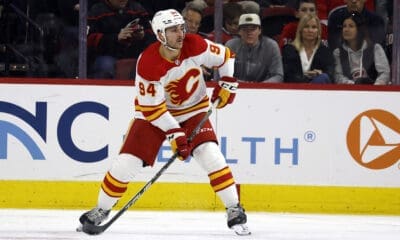Calgary Flames
The New Economics of the NHL

It’s a very delicate discussion to look at the tea leaves of the NHL and speculate on the future of the next decade, given the current economic state of the United States.
When I first started writing for SBNation I casually put up an article on relocation to Winnipeg from Atlanta quite some time before it happened. The response was fast and furious.
I didn’t think there was anything radical at all about the article but the response was emotional, visceral and instant. To this day it remains one of my most viewed articles. Also one of my most controversial. There is a plethora of southern hockey fans online and especially in the SBNation circuit.
You write for your audience to a degree and the hard truth of a favorite players poor performance statistically backed up is certainly better received than the hard truth of an economic reality, also statistically backed up.
Many readers want to hear about none of the economic issues that surround the NHL. It is simply a taboo topic in the SBNation hockey world or it is one that everyone is tired of talking about. This article is a predecessor to a NHL contraction article that I have left unpublished for months now. I’ll test the waters with this one. If this topic is offensive to you, upsets you or is simply something that you are tired of hearing about you may want to just move along.
You certainly will not want to read it.
Dirk Hoag of On the Forecheck has touched on recent issues and so has Cassie McClellhan with her article on the Lightning blog Raw Charge. I feel like they have broken enough ground that it is actually permissible to test the waters on the topic as a fan of a Canadian team.
One of the ironies of this is that although I am originally Canadian l live in the American south now, in Texas specifically.
I am a supporter of southern hockey for selfish reasons. If Phoenix, Nashville or Dallas were to relocate it would affect me personally. It would affect my ability to go see the Flames play when they visit these cities and it would limit my ability to see NHL hockey live.
I like the cities of Phoenix and Nashville for non-hockey reasons as well. My wife enjoys visiting them. Yes we catch a hockey game on the appropriate night but we fly out for the weekend at least and happily put our dollars into the local economy.
Try and keep that in mind before you rip me a new one because at this point someone would have to pay me to go visit Atlanta again after the on-line whipping or “thrashing” some former Thrashers fans gave me on my predictive article of relocation to Winnipeg – lol.
To write strictly my own opinion would not be good enough for the confederate army of some southern extreme hockey fans, all ready to pounce on their key board with a rat-a-tat-tat and call me a hack, an idiot, a shoe-shine boy (whatever that means) and the various other names that I got called on my other article.
So right off the bat lets put up a foundational document published from the Mowat Centre and the School of Public Policy and Governance from the University of Toronto for discussion entitled The New Economics of the NHL.
I highly recommend you take the time to read this through, as the remainder of my article is just a quick glossing over of the much more detailed points presented in this paper.
This article is slightly dated at April 2011 and the relocation of the Thrashers to Winnipeg had not occurred yet. It was also before the NHL’s new T.V. deal had been announced. It also was obviously before the United States credit rating was downgraded from triple AAA to AA+.
The paper explores the possibility of an unprecedented 9 additional NHL teams in Canada, that is in addition to the 7 teams already located in Canada presently, for a grand total of 15 NHL teams in Canada.
GASP – crazy talk right? Well an argument is made, at least to a certain point.
Shared Arenas
An interesting angle the author considers is two teams in the big Canadian markets sharing arenas. A 2nd team in Toronto is a guaranteed money machine, it can not fail and would probably instantly enter the top 5 NHL teams in revenue.
The hold back, as it is with most NHL candidates, is the modern arena. But the Leafs recently moved into a state of the art new ACC arena. With a little scheduling finesse the Leafs could share the ACC with a 2nd NHL team, the Toronto St. Pats 2.0. for example. With the arena cost removed from the equation both teams would roll in the dollars.
The same principle is applied for Montreal, a Montreal Maroons 2.0 perhaps, and its new Bell centre. Vancouver with its relatively new Rogers Arena and a Vancouver Millionaires 2.0 etc.
SNAP – that is three more NHL teams in Canada in modern NHL quality arenas and no one even picks up a shovel and no tax-payer drops a penny. It could happen in one off-season. These 2nd teams would likely be owned by the same owners of the current teams and they all are in comfortable 2 million+ markets in population; which is rock solid for a Canadian hockey market.
It isn't the size of your boat population, it is the motion of your ocean hockey fans.
One of the non-stop on-line critiques of Winnipeg is its small population. Without rehashing all the details of why the Jets moved and why it couldn’t work in the old structure let me say that it was not a lack of fan support. When little kids empty their piggy banks and mail money to the team, when 35,000 people rally to save the team, it was not a lack of fans. It was exchange rates and a NHL structure that was eating small market teams alive. A situation that has been corrected in the new NHL.
A small Canadian market can now out-perform a big U.S. city and the reason is simple.
Winnipeg has 750,000 people, American City X has 5 million people.
The NHL is a GATE driven league, attendance is critical. Butts in the seats. In American City X with 5 million people, how many hockey fans do they have? 10,000, 50,000, 100,000, 250,000 – these are paying customers not a sports fan who may watch hockey on T.V., if there is no football, baseball or basketball on.
How many do you think they have? Heck, lets estimate really high and say it is 10% of the entire big boat of the population – 500,000 paying hockey fans. That is one heck of a healthy hockey market right? Should be quite tough to get good tickets in that market.
Do you know how many hockey fans that tiny little city of Winnipeg has with its tiny population of 750,000 people? It has 750,000 hockey fans. There is not one person in the city of Winnipeg who if they have the chance to go to a Jets game will turn it down. I can state that pretty comfortably and that is the difference.
In a gate driven league it is a critical one. The Jets are the main show in town now.
Here is the secondary market price of prime Jets tickets on opening night against Montreal on Stubhub. I got sweet seats all the time at MSG in New York and I never paid anything even remotely close to that. The Jets with their 15,000 seats are also in the top 5 in the NHL for ticket prices and this is why it will work in Winnipeg.
The Super Small Markets
The author, because of the gate driven focus, goes on to consider ridiculously small markets in Canada.
Saskatoon with a population of 257,000, Halifax with its population of 398,000, London with 489,000 – this is too heady for me but it is driven by the same principle previously mentioned. It isn’t the size of the city, it is the number of paying hockey fans and butts in the seats. Even with the most optimistic perspective possible it is quite a stretch to see these markets getting NHL teams, especially given the fact they lack a modern NHL arena.
The remaining cities he discusses of the ten – Winnipeg (done), Quebec City (likely), Hamilton (Arena question with an aging Copps Arena but maybe), Kitchner-Waterloo (?) – I’ll leave it up to you decide which are most probable.
The big three Canadian markets (Vancouver, Montreal, Toronto) if ownership agreed or owned the 2nd team could quickly accept a relocated team. Winnipeg already has their team now and with Quebec City on the verge of building a modern arena it may not be too much of a stretch to see 4 additional NHL teams in Canada or 3 at least.
Median Household Income
I have literally written and deleted this section 10 times, trying to find the polite way to talk about this economic element of the market – I brought this up before in the Winnipeg article and had a borderline death threat e-mailed to me soooo – all I am going to say is that median household income in each Canadian city is mentioned in The New Economics of the NHL article.
If you want, you can look up U.S. census comparisons for median household incomes in other cities and connect the dots yourself given the current state of the American economy.
I am not presenting the figures here nor am I going to make any macro-economic comments. It should not be too controversial to state the simple fact that in addition to needing hockey fans in your market, they need to be paying fans who have disposable income to spend on luxury items like live sports entertainment.
I’ll just leave it at that.
Northern Expansion
The underlying theme is a case for a “Northern Expansion” into Canadian markets. The Southern expansion was not tentative, nor was it a quick cup of coffee in a city, as it was in the past with the Kansas City Scouts and the Cleveland Barons. Every team in the South has had at least a decade to germinate a paying fan base.
At this point you can ask yourself if the margins are there for this product.
Stanley Cups have also been won by the Southern teams, the Anaheim Ducks, the Tampa Bay Lightning, the Carolina Hurricanes, the Dallas Stars.
The wheel turns round and round, history has a tendency to repeat itself. In the 90s the shoe was firmly on the other foot. The economy is a factor, exchange rates are a factor and it is difficult to not see these forces weighing into the future of southern hockey.
The NHL may adopt a new mandate of a “Northern Expansion” to replace the Southern Expansion, it is not out of the question in the current era of economic uncertainty.
If it doesn’t happen, well, the other option is contraction…
A vastly unpopular notion that is not supported by the NHLPA or the NHL.
by M Smith









